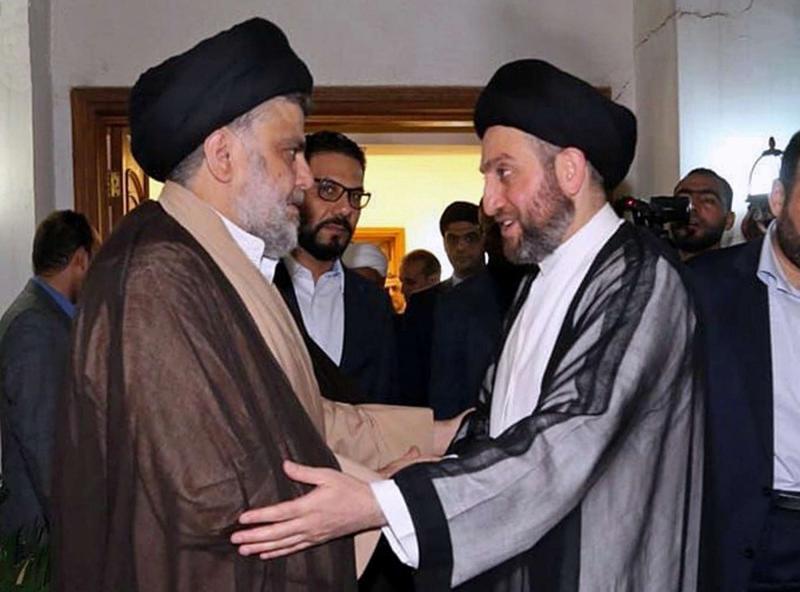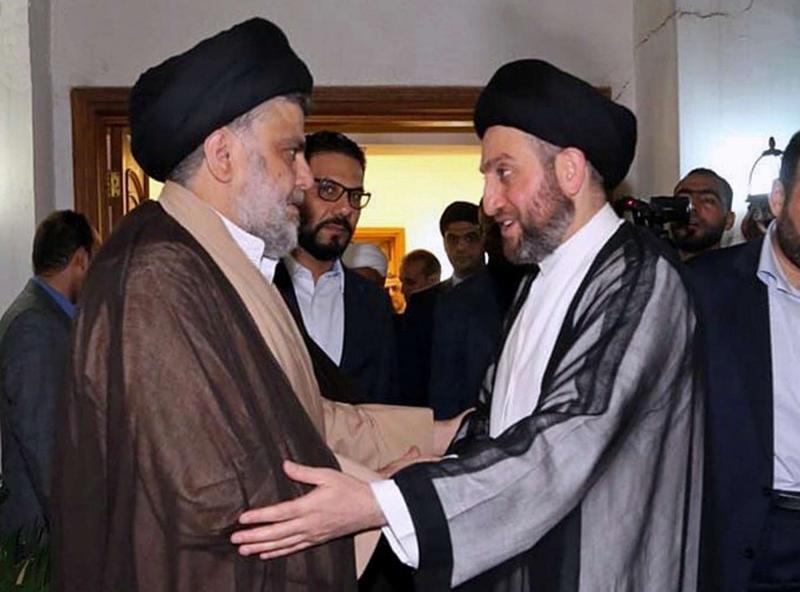Can Muqtada al-Sadr deliver on his ‘Iraq first’ promise?
Propagandist attempts to reinvent the image of populist leader Muqtada al-Sadr following his Islamist-Communist party alliance’s shock election victory selectively restitch Iraqi history. The inconsistency of al-Sadr’s positions, alliance shifting, resorting to violence and antagonistic relations with non-Sadrist Shia political actors are important features that received little more than an anecdotal reference in assessments of his “Iraq First” approach.
Viewed as politically illiterate, clumsy and suicidal and whose violence unnerved Iraq’s new elite, post-2003, al-Sadr was never the United States’ favoured political maestro or an attractive ally. He inherited and utilised his father’s populist base and vision to let him be known.
As far as the movement’s reinvention was concerned, religion ranked second to violence and, in certain instances, was circumvented to ensure the survival of his support base. This was the case for Sadrist members who engaged in looting, let off the hook in exchange for paying Khums tax — a one-fifth of the value of spoils of war amount levied on Shia Muslims.
Al-Sadr’s surging popularity was feared by occupying powers and Washington’s favoured Shia candidate, not for what he could achieve but for what he was capable of destroying. Calling on his Shia clientele, al-Sadr responded to his exclusion from Iraq’s new sectarian political order with violence whose fires America could not quell. It also earned him points among the ranks of Iraq’s resistance movement but it still placed Iraq second to al-Sadr’s own aspirations.
The 60,000-strong militia he raised fought unapologetically against foreign forces occupying the country, while simultaneously manoeuvring towards supreme power by taking on other Shia rivals.
Al-Sadr’s refusal to accept a junior position in politics came at a cost. A seat in power required him to divorce himself from Iraq’s resistance, putting Iraq second to the whims of US decision makers. The violence and anti-American rhetoric he allegedly dialled down were revived in subsequent years. Sunni components of Iraq’s resistance movement that al-Sadr worked with to expel invading forces were given little reason to trust its leader after entering the political process managed by the same foreign powers he vowed to destroy.
After the bloody battle of Sadr City ended, al-Sadr found himself up against powerful Iran-founded and -funded parties and figures that have long distrusted al-Sadr’s domestic, Iraq-grown constituency. Rivalries have extended into the pre- and post-Islamic State phase, while violence continued to be used as a self-serving strategy.
Ten years later, al-Sadr’s relations with Baghdad, Washington and Tehran remain fraught. Being unable to wrestle the largest Iran-backed coalitions — Fatah and Nuri al-Maliki’s State of Law — may force changes to al-Sadr’s strategy.
New alliances of convenience, such as the latest Sadrist-Communist alliance, have seen al-Sadr reach out to communities beyond his traditionalist base. Some have dissolved, while others are yet to face the test of Iraq’s tumultuous political area.
The ballot box contest that crowned Sairoon the winner of the 2018 election will be very different from the political ju-jitsu we should expect during the government-formation phase. The fate of Iraq’s Communist Party and its allocation of seats in the new parliament will be the true test of al-Sadr’s loyalty.
As important is al-Sadr’s resolute will in challenging the policy decisions the United States and Iran want to exercise at the expense of the future stability of the country.
Political opportunism and reactionary politics may have helped secure al-Sadr’s Sairoon coalition the majority of seats in this year’s parliamentary vote but Iran-backed actors may exclude or include Sadrist parliamentarians merely as window dressing.
As tempting as it is to view al-Sadr as the warrior able to defend Iraq from the United States’ and Iran’s mutual hegemonic aspirations, the past offers an interesting script to learn from. The Sadrists have long been obstructed from pursuing ripe political gains when new opportunities are presented. Old fissures are surfacing once more, between groups that hatched out of the Iran-founded Islamic Supreme Council of Iraq, including the Badr Corps and Ammar al-Hakim’s fledgling party, Al-Hikma movement.
Al-Sadr has few concessions to exercise and has historically buckled under pressure exerted by foreign powers and rivals. His ability to abandon his position of political ambiguity and honour his “Iraq First” pledge will rest on his ability to exercise composure, political consistency and act independently from the advisers, including his nephew Ahmed al-Sadr, and to serve, above and beyond his constituency, Tehran, Washington and Riyadh.
Nazli Tarzi is an independent journalist, whose writings and films focus on Iraq’s ancient history and contemporary political scene.
This article was originally published in The Arab Weekly.







